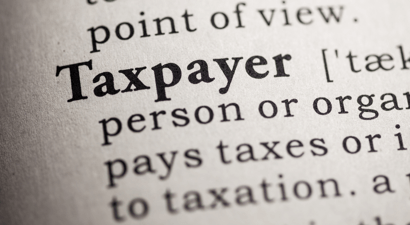The Importance of Contractual Structuring: Can You Be Taxed on a Capital Gain Not Received Due to a Cancellation Agreement?
The case of New Adventure Shelf 122 v Commissioner: SARS (310/2016) [2017] ZASCA 29 (28 March 2017) concerned a taxpayer that was taxed on a capital gain that it had not received due to the subsequent cancellation of the agreement that gave rise to the capital gain.
Facts of the case
During 2007, New Adventure Shelf sold a piece of immovable property to a third party for the sum of R17 720 000. The sale resulted in New Adventure Shelf making a capital gain of R9 746 875. The capital gains tax thereon, levied as income tax, was assessed in the amount of R1 413 006,73.
By the end of New Adventure Shelf’s 2007 tax year, the third party had paid an amount of R2 200 000 to New Adventure Shelf. The remainder of the purchase price, amounting to R15 520 000, was to be paid in instalments after the conclusion of the 2007 tax year. However, by reason of paragraph 35(4) of the Eighth Schedule to the Income Tax Act 58 of 1962, these payments were treated by SARS as having accrued to New Adventure Shelf during that year (2007).
Several years later, the sale was cancelled in terms of a cancellation agreement. In terms of the cancellation agreement, the property was returned to New Adventure Shelf who retained what payments had been made by the purchaser as predetermined damages for breach of contract.
New Adventure Shelf’s problem was that it had been taxed on a capital gain that it had not received and all it could obtain as a result of the cancellation of the sale was an assessed capital loss, with no corresponding gain to set off against the loss.
In light of the cancellation New Adventure Shelf sought to have its 2007 tax assessment reduced, which SARS refused.
On 21 April 2015, New Adventure Shelf instituted review proceedings in the court a quo, seeking an order setting aside the assessment for the 2007 tax year and certain ancillary relief. The refusal of such relief led to this appeal.
Issue
1) In light of the cancellation of the sale agreement four years after the agreement was concluded, can New Adventure Shelf object to their 2007 tax assessment?
2) What are the capital gains tax consequences in the instance where the sale of an asset is cancelled prior to full payment being made?
Relevant law
In light of New Adventure Shelf’s failure to object to its 2007 assessment for more than three years, the initial obstacle the appellant had to overcome was to be found in section 81 of the Income Tax Act. Under section 81(1), a taxpayer aggrieved by an assessment, may object ‘in the manner and under the terms and within the period prescribed by this Act’. Section 81(2)(b) goes on to provide that the prescribed period for objections may not be extended ‘where more than three years have lapsed from the date of the assessment.’
New Adventure Shelf argued that the capital gain received or accrued is calculated in terms of paragraph 35(1) of the Eighth Schedule. That paragraph includes sub-paragraph 35(3), which states that the gain is to be reduced by certain amounts. Paragraph 35(3)(c) refers to any reduction in those proceeds as the result of the cancellation, termination or variation of an agreement. This, it was argued, is what occurred here.
Paragraph 25(2) requires the taxpayer, in those circumstances, to re-determine the base cost of the asset and the capital gain in the light of the change in circumstances. That can only relate to the original assessment. Accordingly, so the argument went, it is the original assessment that must be re-opened and revised in light of the redetermination of the base cost and the amount of the capital gain.
Application
New Adventure Shelf’s argument requires paragraph 35 of the Eighth Schedule to be construed as applying not only to the determination of capital gains in a particular year, but also to require a redetermination in a later year of a capital gain already accrued. But that is inconsistent with paragraph 35(3). The sub-paragraph relates to the determination of the proceeds of a disposal ‘during a year of assessment’.
The provisions of paragraphs 3, 4 and 25 of the Eighth Schedule do not support New Adventure Shelf’s argument. As set out in paragraph 25(2), should there be a redetermination of a capital gain or a capital loss that occurred in a prior year of assessment, that redetermination is to be taken into account not in the prior year but in the year in which the events giving rise to the redetermination take place.
Conclusion
The cancellation of the sale did not entitle New Adventure Shelf to have its tax liability for the 2007 year re-assessed. The cancellation and its consequences were factors relevant to an assessment of any capital gain or, more likely, capital loss that accrued during that current tax year (2011) and not the year that the capital gain had initially accrued (2007).
Remarks
The Eighth Schedule has subsequently been amended, in the form of paragraph 4(c), to provide that, in the instance where a taxpayer accrued a capital gain in a previous year but later that gain fails to come to fruition due to a cancellation of the initial agreement giving rise to the capital accrual, then the taxpayer incurs a capital loss at that moment which equals the amount of the capital gain initially made. Although the purpose of this amendment is to place the taxpayer in the tax position he was in prior to the sale that gave rise to the initial capital accrual, the relief provided does not take into consideration the fact that the taxpayer may well not have the funds to pay the tax on the initial capital gain and a subsequent capital loss cannot be used to offset the initial capital gain.
Taxpayers that intend on disposing of an asset in exchange for payment in instalments are advised to seek advice from their tax practitioner so that the sale agreement can be structured in such manner that the accrual of the proceeds is deferred until such time that the payments are received. Such contractual structuring would alleviate a taxpayer from the same fate as New Adventure Shelf.





